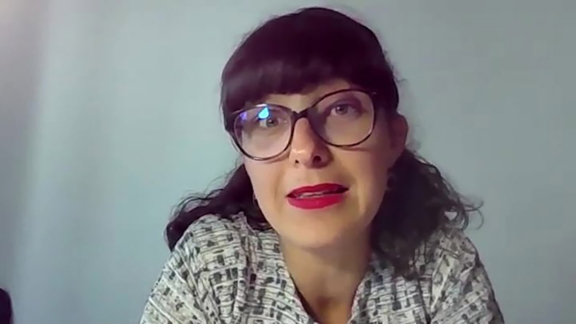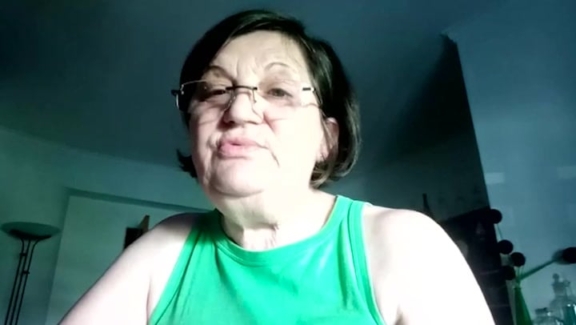So far yet so close
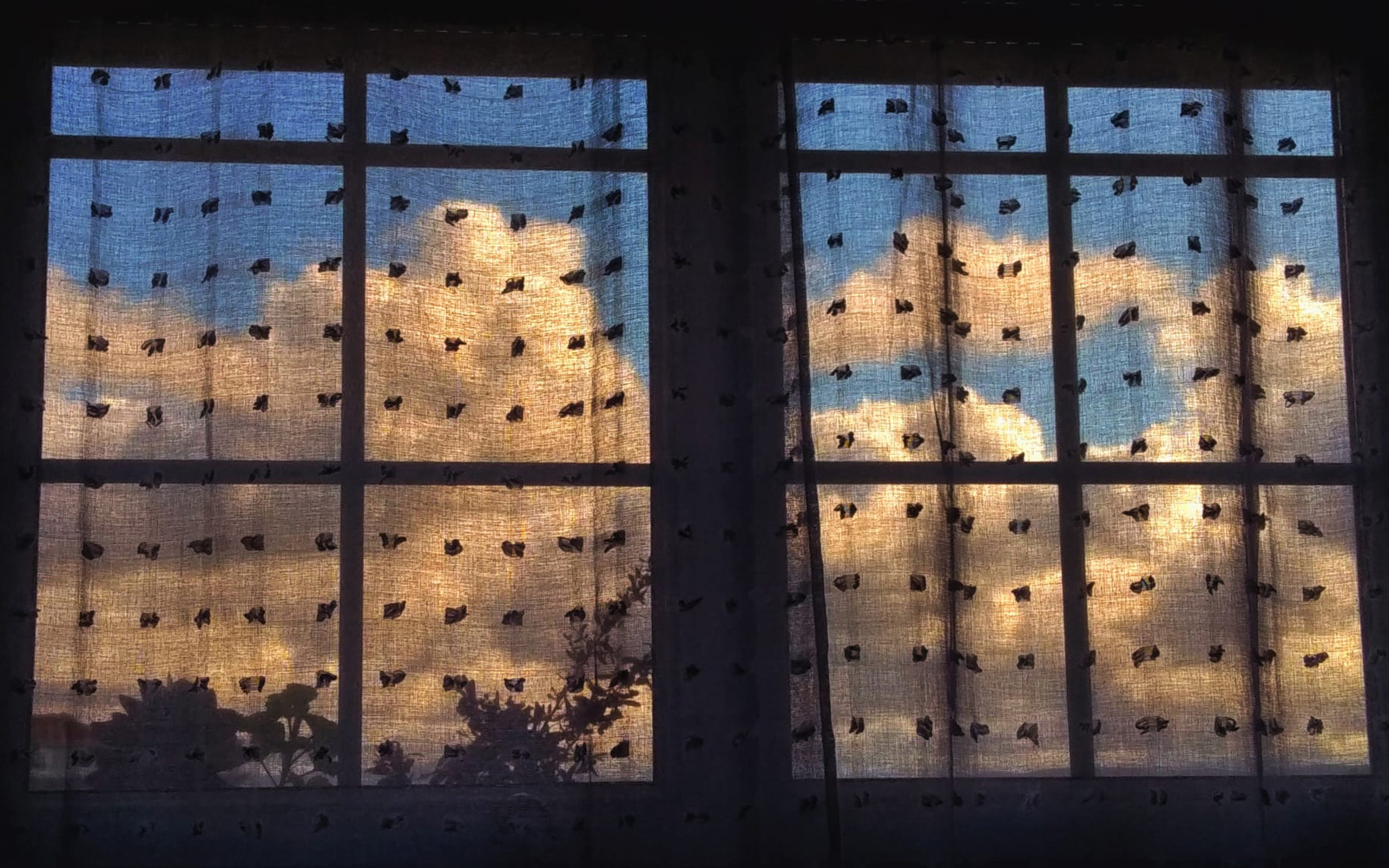
In the region of Cova da Beira, there are two groups of women who have gathered regularly, since the beginning of May 2019, to take part in laboratories of introduction to artistic practices. These are essentially multidisciplinary encounters, a space for experimentation through theatre and movement, but also for thinking and learning together while reflecting upon gender questions connected with single-parent families, labour rights and social intervention. In the region of Cova da Beira, there are two groups of women who have gathered regularly, since the beginning of May 2019, to take part in laboratories of introduction to artistic practices. These are essentially multidisciplinary encounters, a space for experimentation through theatre and movement, but also for thinking and learning together while reflecting upon gender questions connected with single-parent families, labour rights and social intervention. These laboratories, joining participants from Covilhã, Fundão and Belmonte, are one of the main initiatives of project VELEDA, promoted by Beira Serra – Associação de Desenvolvimento, in a partnership with another association of performance artists, Quarta Parede.
The announcement of the pandemic followed by the state of emergency, which caused the suspension of these laboratories, was a setback in the lives of these women, who were, all of a sudden, stuck at home with their children with new problems to solve. Marisa Marques, responsible for the social area of the project, explains: “in the VELEDA group we have people who experience very different realities. Women who have had to get out of their homes and keep working, women who lost their jobs because of the pandemic; a vast majority lost their sources of income; and others have had to work even more than they did before, also having to help their children through confinement, with or without internet, with or without a computer…”. Beyond the “practical” questions that Beira Serra tried to address, it was a feeling of togetherness that kept the project alive and made it go online “creating an online support group which was virtual but was really there”.
Quarantine Diaries
Verónica has three children aged 10, 11 and 15. Zita Pires lives with two adolescents. Although their situations are different , their testimonies match when they talk about the biggest challenge they’ve had to face during times of confinement: keeping up with their children’s learning, keeping them motivated to learn and juggling work and domestic life with this new form of education. “The school asks for a lot of stuff”, Verónica says, “they completely forget that as a single mother I am working from 9 a.m to 5 p.m and I still have to get things done at home”. The pressure from school, the feeling of powerlessness, injustice, disrespect for private space and fear of failure are common subjects. “If my daughters fail, I fail too, and this means we didn’t make it. What was it that was left undone? If I get sick, to whom can I ask for help? Where would my daughters go?” were some of Zita’s questions when anxiety would strike.
When confinement became a reality, the solution was to go online. Groups on social media, phone calls and video chats became the new channels through which they could share things and support one another. “At first”, says Sílvia Fereira, who is responsible for the artistic contents of the project, “I think it has to be about sharing day-to-day life and getting to know other peoples’ situations, but also trying to promote some peace of mind and providing a sense of safety within the group so that everyone can share their anxieties and open their hearts”. After this, they came up with some small weekly challenges: exchanging short videos with acting exercises, creating diaries of the experience of their day-to-day, sharing art or inspiring documentaries.
“We wanted to maintain our connection and the presence of the project without intruding or disturbing the new routines that everyone had to create” explains Sílvia. One of the challenges was to “send pictures that could portray their daily routines and the changes that came along with them in order to create a short video with all of them. We called them Quarantine Diaries.”For Marisa Marques, these were “times where we came together as a group”, and even those who did not participate that much found a new voice and presence. Some of the participants even volunteered to help with other missions of Beira-Serra, for example by creating masks for the communities with which the association usually works.
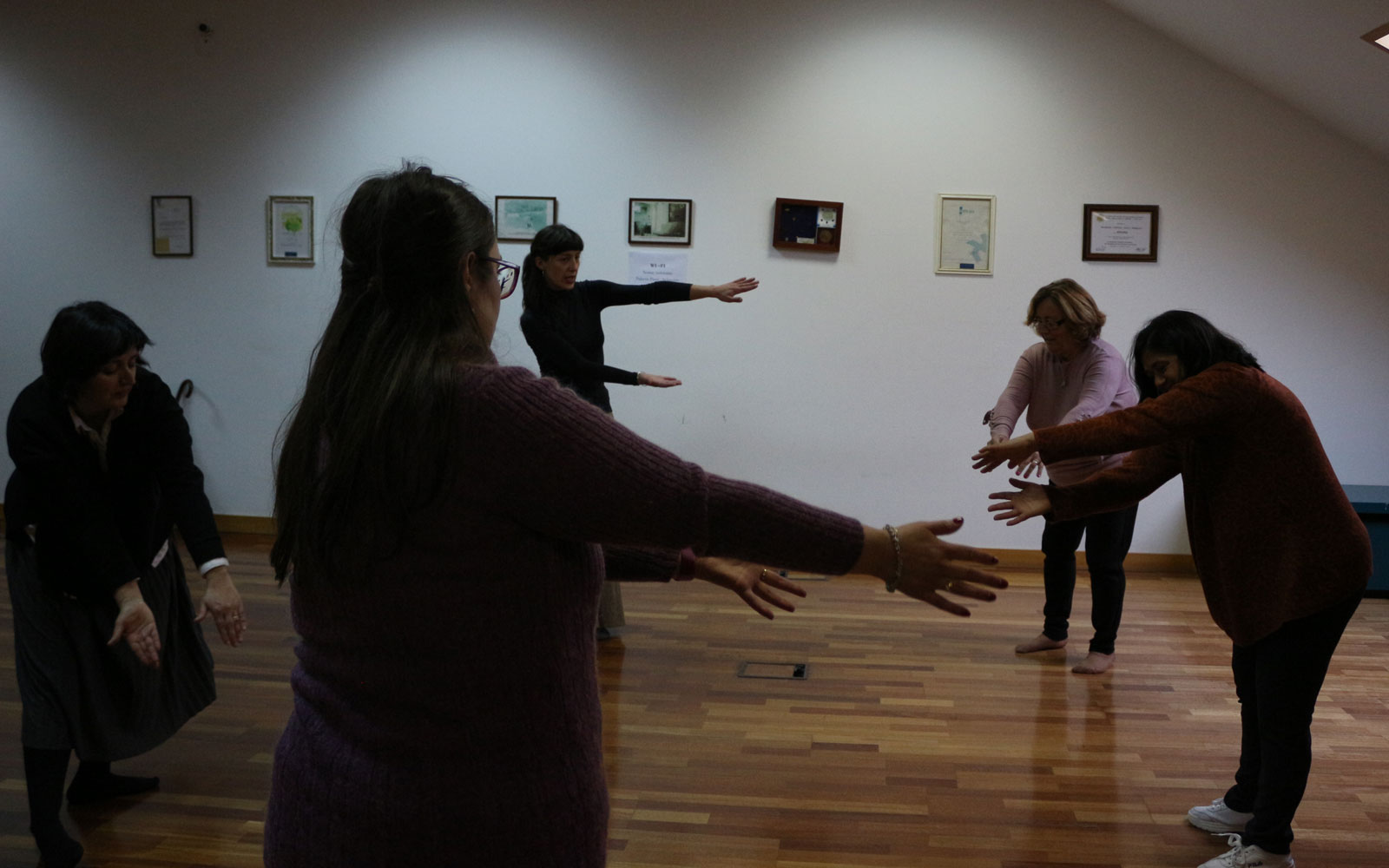
Getting out of the house only to come home again
“Ironically”, says Sílvia, “we were pursuing the idea of home in our laboratories. The physical, emotional, symbolic space we call home had a big presence in the performance work of the two group dynamics we were exploring”. After this experience, with the return of “normal life” and with the resuming of their activities, they will have to rethink everything they had created and work “in terms of the languages of theatre and movement to discover the meaning of this distance between bodies”. Although the distance is not essentially positive, “it can be a creative trigger and a path of reflection”.
For the participants, this creative trigger is of undeniable importance. Besides being a single mother, Verónica lives far away from her family and the project has been a sort of “family support”. “I think that this upside, the feeling of belonging, is only possible because the group communicates not only through words but also through the body, with all the exercises we have done. Every artistic and dramaturgical tool if fundamental because it creates change in our lives; suddenly, a tragic situation loses a little bit of its weight, its emotional load, and generates a potential for transformation which would not exist without this tool”.
Zita emphasizes that her participation in this project has made her feel valuable. “When meeting other adults, people with different cultural backgrounds and lives, who have the same problems or different ones, I felt I could speak openly without feeling judged. I felt I had value as a human being, that I had something to say and that I could and should do it”.For now, the future seems bright. “We are sure that people are going to be back even closer, with the feeling of having been together for all this time. They will return feeling a good kind of anxiety, hoping that everything will be fine and that these perspectives and moments of reflection will bring their contributions” concludes Marisa Marques.
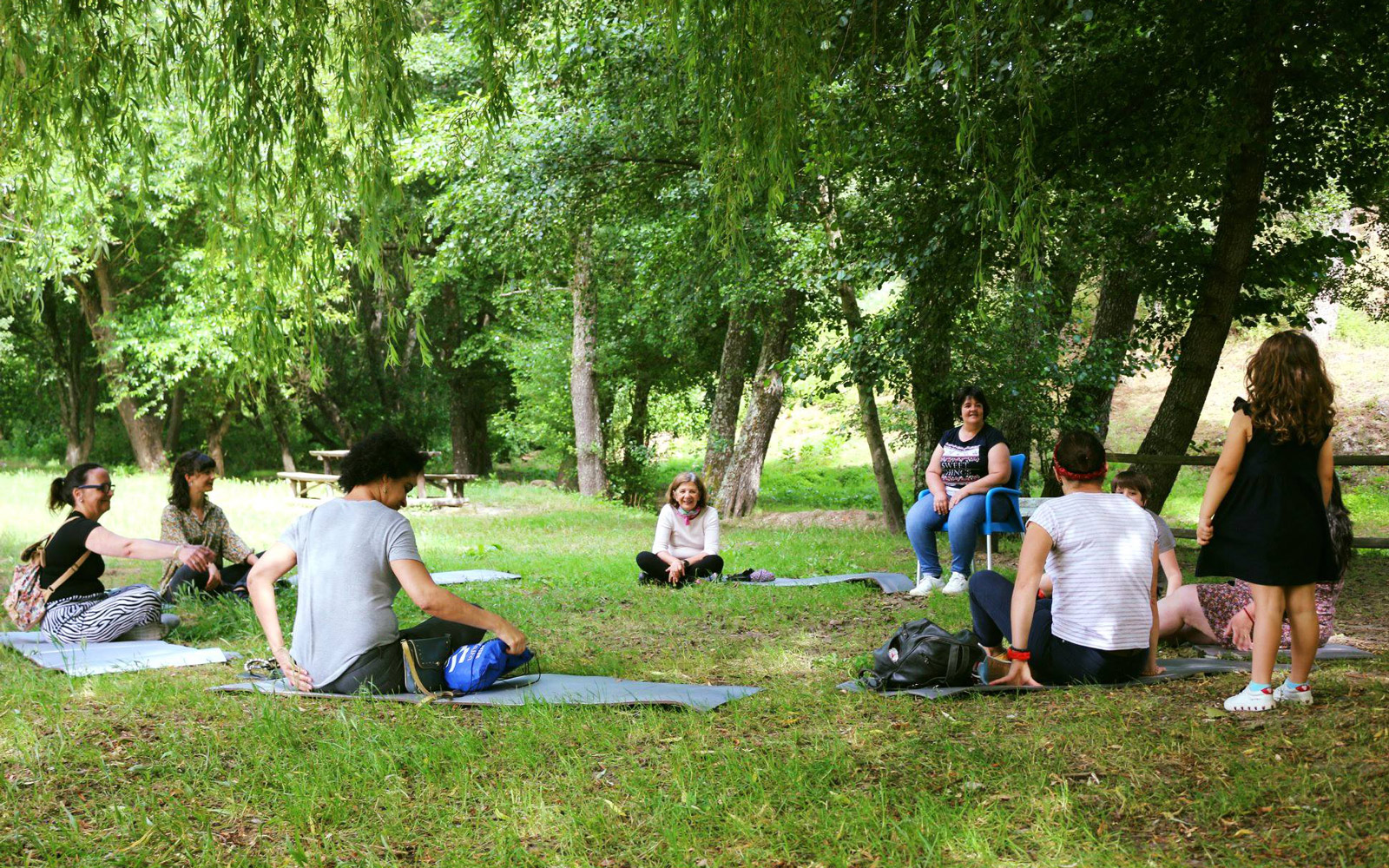
Project VELEDA – from the pseudonym “Maria Veleda”, adopted by Maria Carolina Frederico Crispim (1871-1955), one of the most important figures of the Portuguese feminist movement and a pioneer in the fight for women’s rights, for the education of children and for republican ideals – aims to help single mothers who are in a vulnerable socio-economic situation. The artistic proposal consists of two interconnected activities: the social and artistic search laboratories, for promoting soft-skills and an introduction to theatrical practice, but also the creation of a documentary play with a professional artistic team.
Besides the support of the PARTIS initiative, by the Calouste Gulbenkian Foundation, the project is also a partner of MDM – Movimento Democrático de Mulheres [Women’s Democratic Movement] and UBI – Universidade da Beira Interior.
Click here to watch the video about a “Quarantine Diary” on the website of Project VELEDA


